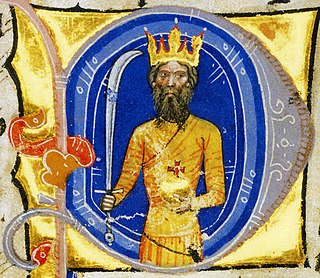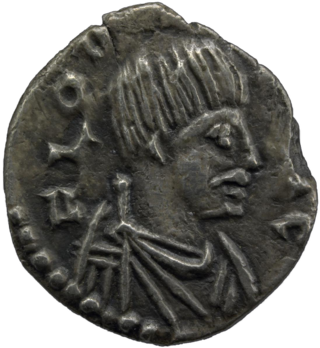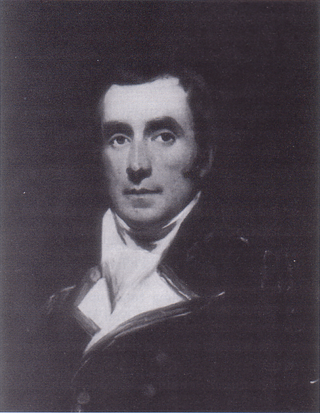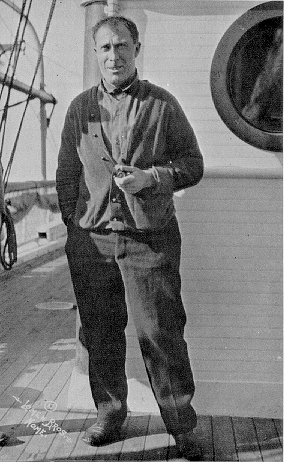
Attila, frequently called Attila the Hun, was the ruler of the Huns from 434 until his death in early 453. He was also the leader of an empire consisting of Huns, Ostrogoths, Alans, and Gepids, among others, in Central and Eastern Europe.

The Huns were a nomadic people who lived in Central Asia, the Caucasus, and Eastern Europe between the 4th and 6th centuries AD. According to European tradition, they were first reported living east of the Volga River, in an area that was part of Scythia at the time. By 370 AD, the Huns had arrived on the Volga, causing the westwards movement of Goths and Alans. By 430, they had established a vast, but short-lived, empire on the Danubian frontier of the Roman empire in Europe. Either under Hunnic hegemony, or fleeing from it, several central and eastern European peoples established kingdoms in the region, including not only Goths and Alans, but also Vandals, Gepids, Heruli, Suebians and Rugians.

Princess Mononoke is a 1997 Japanese animated epic historical fantasy film written and directed by Hayao Miyazaki and animated by Studio Ghibli for Tokuma Shoten, Nippon Television Network and Dentsu. The film stars the voices of Yōji Matsuda, Yuriko Ishida, Yūko Tanaka, Kaoru Kobayashi, Masahiko Nishimura, Tsunehiko Kamijo, Akihiro Miwa, Mitsuko Mori, and Hisaya Morishige.

Odoacer, also spelled Odovacer or Odovacar, was a barbarian soldier and statesman from the Middle Danube who deposed the Western Roman child emperor Romulus Augustulus and became the ruler of Italy (476–493). Odoacer's overthrow of Romulus Augustulus is traditionally understood as marking the end of the Western Roman Empire.

Marcian was Roman emperor of the East from 450 to 457. Very little of his life before becoming emperor is known, other than that he was a domesticus who served under the commanders Ardabur and his son Aspar for fifteen years. After the death of Emperor Theodosius II on 28 July 450, Marcian was made a candidate for the throne by Aspar, who held much influence because of his military power. After a month of negotiations Pulcheria, Theodosius' sister, agreed to marry Marcian. Zeno, a military leader whose influence was similar to Aspar's, may have been involved in these negotiations, as he was given the high-ranking court title of patrician upon Marcian's accession. Marcian was elected and inaugurated on 25 August 450.

Flavius Aetius was a Roman general and statesman of the closing period of the Western Roman Empire. He was a military commander and the most influential man in the Empire for two decades (433–454). He managed policy in regard to the attacks of barbarian federates settled throughout the West. Notably, he mustered a large Roman and allied (foederati) army in the Battle of the Catalaunian Plains, ending a devastating invasion of Gaul by Attila in 451, though the Hun and his subjugated allies still managed to invade Italy the following year, an incursion best remembered for the ruthless Sack of Aquileia and the intercession of Pope Leo I.

Castle in the Sky, also known as Laputa: Castle in the Sky, is a 1986 Japanese animated fantasy adventure film written and directed by Hayao Miyazaki. It was produced by Isao Takahata, animated by Studio Ghibli, and distributed by the Toei Company. In voice acting roles, the original Japanese version stars Mayumi Tanaka, Keiko Yokozawa, Kotoe Hatsui, and Minori Terada. The film follows orphans Sheeta and Pazu, who are pursued by government agent Muska, the army, and a group of pirates. They seek Sheeta's crystal necklace, the key to accessing Laputa, a legendary flying castle hosting advanced technology.

The Diggers were a group of religious and political dissidents in England, associated with what would later be called agrarian socialism. Gerrard Winstanley and William Everard, amongst many others, were known as True Levellers in 1649, in reference to their split from the Levellers, and later became known as Diggers because of their attempts to farm on common land. Due to this and to their beliefs, the Diggers were driven from one county after another by the authorities.

General Sir Charles James Napier, was an officer and veteran of the British Army's Peninsular and 1812 campaigns, and later a major general of the Bombay Army, during which period he led the British military conquest of Sindh, before serving as the governor of Sindh, and Commander-in-Chief in India.

William John Napier, 9th Lord Napier, Baron Napier FRSE was a British Royal Navy officer and trade envoy in China.

Howard G. Kazanjian is an Armenian-American film producer best known for the Star Wars films The Empire Strikes Back and Return of the Jedi, as well as the Indiana Jones movie Raiders of the Lost Ark. Kazanjian was an originating member of Lucasfilm, Ltd., serving as its vice president for approximately eight years.

John Baine, better known by his stage name Attila the Stockbroker, is an English punk poet, multi instrumentalist musician and songwriter. He performs solo and as the leader of the band Barnstormer 1649, who combine early music and punk. He has performed over 3,800 concerts, published eight books of poems, an autobiography and in 2021 his Collected Works spanning 40 years. He has released over forty recordings.

Lee Hall is an English writer and lyricist. He is best known for writing the screenplay for the film Billy Elliot (2000) and the book and lyrics for its adaptation as a stage musical of the same name. In addition, he wrote the play The Pitmen Painters (2007), and the screenplays for the films War Horse and Rocketman (2019).
Jean-Christophe "Pitof" Comar is a French visual effects supervisor and director notable for Vidocq and Catwoman.

Alan William Napier-Clavering, better known as Alan Napier, was an English actor. After a decade in West End theatre, he had a long film career in Britain and later on in Hollywood. Napier is best remembered for portraying Alfred Pennyworth, Bruce Wayne's butler in the 1960s live-action Batman television series.

Robert Abram Bartlett was a Newfoundland-born American Arctic explorer of the late 19th and early 20th centuries.

Ellac was the oldest son of Attila (434–453) and Kreka. After Attila's death in 453 AD, his empire crumbled, and its remains were ruled by his three sons, Ellac, Dengizich and Ernak. He ruled briefly and died at the Battle of Nedao in 454 AD. Ellac was succeeded by his brothers, Dengizich and Ernak.

The Second Egyptian–Ottoman War lasted from 1839 until 1841 and was fought mainly in Syria. It has sometimes been referred to as the Syrian War or Second Syrian War.

In the Battle of Campo Maior, or Campo Mayor, on 25 March 1811, Brigadier General Robert Ballard Long with a force of Anglo-Portuguese cavalry, the advance-guard of the army commanded by William Beresford, clashed with a French force commanded by General of Division Marie Victor de Fay, marquis de Latour-Maubourg. Initially successful, some of the Allied horsemen indulged in a reckless pursuit of the French. An erroneous report was given that they had been captured wholesale. In consequence, Beresford halted his forces and the French were able to escape and recover a convoy of artillery pieces.

Attila the Hun has had many depictions in popular culture. Many of these depictions either portray him as a great ruler or a ruthless conqueror. Attila has also appeared in numerous German and Norse epics, under the names Etzel and Atli, both with completely different personas. His sudden death remains a fascinating unsolved mystery.

















